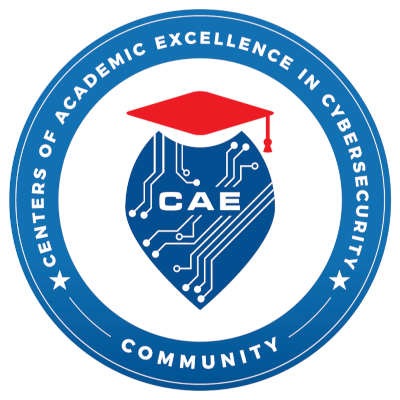Participation in Assumption University Center for Cybersecurity, AUCC, educational endeavors is open to faculty, students, cybersecurity scholars, and students from diverse disciplines and underrepresented populations. A specific goal of AUCC is to involve undergraduate students in Cyber Defense Education enrichment in all its forms.
The AUCC engages an Advisory Council whose membership represents major private and public Cybersecurity industry representatives. Many of the council members are Assumption University alumni with significant relevant experience. All contribute to the ongoing advancement of the AUCC and to the fulfillment of its mission.
Advisory Council Members:
- Ken Corriveau, EVP, Chief Information Officer, Omnicom Media Group
- Richard DesLauriers, Vice President of Corporate Security, Penske Corporation
- Peter Foster, Chairman, Willis Towers Watson Global FINEX Cyber and Cyber Risk Solutions
- Harold Naughton, Managing Partner of the PFAS Cost Recovery Program
- William O’Neill, General Counsel and Member at McDonald Hopkins LLC
- James Trainor, Senior Vice President within Aon’s Cyber Solutions Group, AON Corporation
- Larry Wentzell, Colonel, USMC, Commander, Joint Intelligence Operations Center U.S. Cyber Command
The AUCC exists to:
- Offer coursework leading to a Bachelor of Science in Cybersecurity that aligns with National Security Agency (NSA)/Department of Homeland Security (DHS) standards as defined by the National Center for Academic Excellence (CAE) Cyber Defense Education (CDE) Program.
- Increase minority participation in CDE related careers.
- Support university initiatives and projects related to CDE and Cybersecurity.
- Establish a program of research in Cybersecurity.
- Serve as a local, regional, and national resource for CDE resources.

Earn a BS in Cybersecurity
In addition to its Center for Cybersecurity, Assumption University offers a Bachelor of Science in Cybersecurity. The program is educating the next generation of leaders and architects in cybersecurity, who possess technical expertise and practical training to help secure, develop, and sustain the cyberspace ecosystem.

Assumption University has been designated as a National Center of Academic Excellence in Cyber Defense through the academic year 2028.
Assumption University has been designated as a National Center of Academic Excellence in Cyber Defense. This designation is awarded by the National Academic Excellence in Cybersecurity (NCAE-C) program – which is managed by the National Security Agency (NSA) – and it means the University’s cybersecurity curricula and its B.S. in Cybersecurity degree meets or exceeds the established standards in articulating cybersecurity education. In addition, the liberal-arts foundation of the program directly aligns with and supports the following NCAE-C program core values and guiding principles:
- The Ethical Behavior Core Value: The academic institution must encourage and support ethical behavior by students, faculty, administrators, and professional staff.
- The Share Core Value: The institution enables an environment in which students, faculty, administrators, professional staff, and practitioners can share, interact, and collaborate with others in the cybersecurity field.
- The Lead by Example Core Value: The institution demonstrates a commitment to address, engage, and respond to current and emerging cybersecurity issues in the classroom, the institution itself, and outside the institution.
2025 Inaugural Induction Ceremony for the Assumption University Chapter of the Order of the Sword and Shield national honor society
Cybersecurity Forum Speaker Series
The most recent recordings of the Cybersecurity Forums can be watched below.
April 2025
Presentation 11::
Cybersecurity Guest Speaker: Selvan Snow (Cybersecurity Leader, Professor and Mentor, Lemnisec LLC)
March 2025
Presentation 10:
Quantum Computing Workshop: Richard Preston (MITRE Corporation)
October 2024
Presentation 9:
Cybersecurity Guest Speaker: Jarret Wright (CISO, Massport)
April 2024
Presentation 8:
Cybersecurity Program Alumni Speakers: Jack Supernor (UMass Memorial), Fred Anim-Amofa (TJX), Sam Malone (Cambridge Savings Bank), Cameron Carpenter (Deloitte), Matthew McNaughton (Liberty Mutual), Connor Flanagan (Liberty Mutual)
March 2024
Presentation 7:
Speaker: John Hammond (Principal Security Researcher, Huntress)
November 2023
Presentation 6:
Richard Cehon, Director, Business Analyst – Cyber Business Intelligence Squad Leader
Dylan Myles, Principal Cybersecurity Engagement and Awareness Consultan
Ed Holohan, Chief Product Owner, Application Security
Martin Grant, Director, Business Information Security Officer
Presentation 5:
Richard Cehon, Director, Business Analyst – Cyber Business Intelligence Squad Leader
Steve Macintyre, Senior VP, Product Area Lead for Data Security and Analytics/Cloud Security
Lydia McGowan, VP, Data Analytics and Business Intelligence
Winnie Shek, Director, Business Information Security Officer
Dan Long, Cloud Security Leader
October 2023
Presentation 4:
Nathan Poirier, Senior Manager, Security Operations
March 2023
Presentation 3:
Zach Dayton (Manager, Incident Response Services, Rapid7) and T.J. Nel (Director, Threat Research, Secureworks) engaged the audience in conversation about “Digital Forensics & Incident Response (DFIR)”.
October 2022 (Cybersecurity Month)
With Cybersecurity month underway, the theme for this forum series was titled: “Seeing yourself in Cyber”:
Presentation 2:
Amanda Alvarez, Senior DevSecOps Engineer
Presentation 1:
J.J. Widener, Data Protection Architect
AU Cyber Club – Leadership Team for Academic Year 2022-2023:
- Joshua Wood, President
- Christian Buckley, Vice President
- Brianna Michael, Secretary
- Patrick D’Eufemia, Treasure
Assumption University Cybersecurity Club
The Assumption University Cybersecurity Club aims to build and facilitate its members’ understanding and mastery of cybersecurity knowledge and skills through weekly meetings, engaging in Capture the Flag (CtF) style learning, and providing community services to raise everyone’s awareness and interest in cybersecurity.
AU Cyber Club – Leadership Team for Academic Year 2025-2026:
- Lucas Audette, President
- Harrison Puntillo, Vice President

